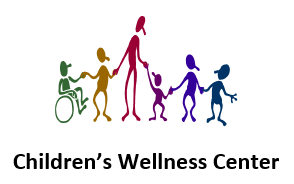Children and teens can glean a myriad of academic, social, and personal benefits from extracurricular activities. Also called enrichment activities, extracurriculars can include activities such as sports, before-and-after-school programs, educational clubs, student government, private lessons, tutoring, and community service.
The Benefits of Extracurricular Activities
On the personal and social front, extracurriculars enrich the lives of children. These activities can help children make friends, strengthen their self-esteem, hone their talents, and develop communication, leadership, and technical skills. Extracurriculars also provide children with opportunities to explore, discover, and pursue their interests and passions.
Academically, students who participate in extracurricular activities perform better, have better attendance, and are more engaged in school, according to the National Center for Education Statistics. They also develop strong discipline that supports better study habits. In addition, extracurriculars strengthen applications for college and scholarships, helping open the door to a variety of opportunities.
The Drawbacks of Extracurricular Activities
In excess, however, extracurricular activities have some drawbacks. A recent study has even shown that too many enrichment activities can harm mental health. The downsides of too many extracurriculars include:
- The potential for increased levels of stress and anxiety
- Feelings of being overwhelmed
- Burnout
- Overscheduling and a lack of free time
- Reduced opportunities for creativity and spontaneity
Additionally, while extracurricular activities can boost academic performance, overextending oneself with too many commitments can lead to poor academic performance, as students neglect their studies while focusing too heavily on extracurriculars.
When it comes to extracurricular activities, moderation is key. For children to thrive in their lives, excel academically, and glean the benefits of enrichment activities, parents need to help their kids find a healthy balance of school, homework, participation, and free time.
Finding a Healthy Balance: Prioritization and Time Management
Learning to balance extracurricular activities can teach children additional skills that will benefit them for the rest of their lives, such as time management, prioritization, responsibility, what it means to make a commitment, self-care, and the ability to know when to say “no.” As a parent, it’s your job to guide your child through the process of managing their time and learning to prioritize their activities.
For example, parents should set boundaries around sleep and health. Most teens need a little over nine hours of sleep per night. Coupled with the time it takes them to eat dinner and complete their homework, most children don’t have a lot of after and before-school time left for other activities. So, identifying interests, their life goals, and the extracurriculars that will help them pursue those things will be essential to effectively prioritizing which activities kids choose.
Encouraging Self-Care: Realistic Goals and Managing Stress
As an adult, it can be easy to look back on childhood through rose-colored glasses, forgetting the stress and pressure that we all experience as children who are trying to make it onto the basketball team, earn a seat in the school’s orchestra, get into a private high school, or get accepted to the university of their dreams. Our kids feel immense pressure to achieve and set themselves apart from their peers.
As parents, we have more perspective regarding what truly matters in life. While it’s our job to encourage and support our children in the pursuit of their goals, it’s also good for parents to help their children set realistic goals and keep everything in perspective so that they do not stretch themselves too thin.
In addition to setting boundaries around sleep and health, parents should also help their children build resilience by teaching them techniques for managing stress, helping them make difficult decisions about committing to or dropping extracurriculars, and scheduling time for their children to relax, play, be creative, spend time in the outdoors, and enjoy just being kids.
As parents, we should pay close attention to our children so that we can notice changes in their physical, mental, and emotional well-being. If you notice changes for the worse, such as your child feeling tired all of the time, their grades dropping, or them spending less and less time with their friends and family members, then talk to them to get to the bottom of the change. They may have too many activities, and you can help them recognize when an activity is no longer serving them and support them in their efforts to better balance their schedule.
Professional Guidance for Balancing Your Child’s Schedule
At Children’s Wellness Center, we understand how quickly a child’s schedule can book up with school, activities, and extracurricular commitments, but it’s important to make time for wellness, self-care, and rest, too. Our pediatricians are here to help support parents and provide children with additional resources to understand that wellness prioritizes physical, emotional, and mental well-being, in addition to academic achievement.
If you have questions about balancing your child’s academics and extracurricular activities or have concerns about their stress level and happiness, we encourage you to contact us. Our pediatricians can talk with you and your child about these concerns and help you determine an appropriate solution to optimize your child’s schedule, stress levels, and accomplishments.

